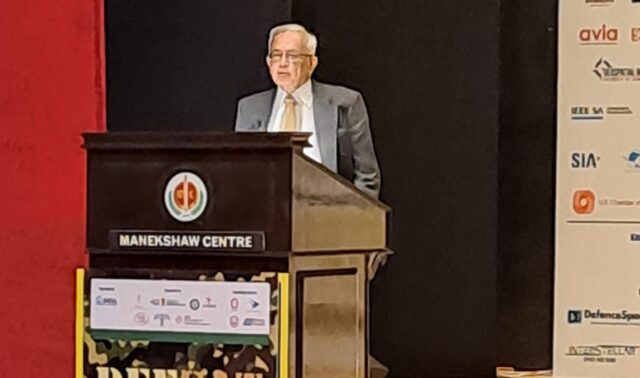NEW DELHI: Ambassador Bhaskar Balakrishnan, who is also the Fellow for Science Diplomacy, Research and Information System for Developing Countries, gives his thoughts on the challenges governing space today at the DefSat Conference and Expo. Excerpts:
What should be India’s role in space?
International cooperation is a strategic area for a space programme. India has always recognised the importance of working with international partners. Areas like climate change impacts on Earth, space science and planetary exploration need international cooperation. India is pursuing bilateral and multilateral relations with space agencies and space-related bodies for new scientific and technological challenges; refining space policies and defining international frameworks relevant to the use of outer space for peaceful purposes. India is an emerging space power, capable of assisting other countries in space technology. We have formal cooperative arrangements signed with 59 countries and 4 multilateral bodies. International cooperation in some specific projects. For instance, ISRO’s maiden mission to the Moon, the Chandrayaan-1, has been an exemplary example of international cooperation with its international payloads. It was instrumental in the ISRO-NASA joint discovery of water molecules on the moon’s surface. We are also the chair on the scientific and Technical and Legal sub-committees of the United Nations Committee on the Peaceful Uses of Outer Space (UN-COPUOS). There are many other examples of India’s international cooperation in space and its role in international bodies.
Is there competition among various space initiatives?
There are some space initiatives that seem to be in competition. The Artemis Accords of 2020 is a non-binding multilateral arrangement for the Artemis program, an American-led effort to return humans to the Moon by 2025. The Accords establish a framework for cooperation in the civil exploration and peaceful use of the Moon, Mars, and other astronomical objects. They are explicitly grounded in the United Nations Outer Space Treaty of 1967. As of December 2022, 23 countries and one territory have signed the accords. The Accords remain open for signature indefinitely, as NASA anticipates other nations will join. The Accords remain open for signature indefinitely, as NASA anticipates other nations will join. There is the Sino-Russian lunar agreement in 2021 on the joint exploration of the Moon and the opening of a lunar research station. In 2019, Russia and China agreed to collaborate on a mission to send people to the south pole of the Moon by 2026. This joint Sino-Russian mission also aims to eventually build a Moon base and place a space station in lunar orbit. Then there is the Asia-Pacific Space Cooperation Organization formed in 2005. Led by China, it includes Bangladesh, Iran, Mongolia, Pakistan, Peru, Thailand and Turkey for the development and launch of satellites, and to expand and normalise the use of the Chinese BeiDou navigation system—the Chinese version of GPS. Countries that use the system could become dependent on China, as is the case of Iran.
Why is global space cooperation so important?
We need to jointly tackle space debris, earth orbit space management, planetary defence, HGV and HCV activity (30-100 km) International cooperation is being hampered by geopolitical tensions arising from the Ukraine conflict and US-China tensions. Despite tensions during the Cold War, the US and the USSR acted carefully to avoid causing crises and even cooperated on a number of projects in space. Today, there is a trend for militarisation and weaponisation of space through dual-purpose satellites and ASAT development.
What are your thoughts on the space economy and the governance of space?
There has been tremendous growth of commercial activities in space in the past decade. Space cooperation could be driven by shared commercial interests and specific commercial projects in space. However, under current international space law, any company that operates in space does so as an extension of—and under the jurisdiction of—its home nation’s government. Given the current framework, states, not commercial entities, will probably continue to dictate the rules in space. But the influence of commercial interests will grow.
(This interview appeared first on interstellar.news)
















